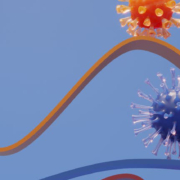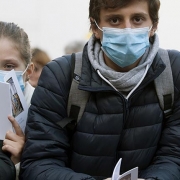Prior exposure to common cold coronaviruses enhances immune response to SARS-CoV-2
Researchers from Charité – Universitätsmedizin Berlin, the Berlin Institute of Health at Charité (BIH) and the Max Planck Institute for Molecular Genetics (MPIMG) have shown that certain immune cells, which are found in people previously exposed to common cold coronaviruses, enhance the body’s immune response to SARS-CoV-2, both during natural infection and following vaccination. The researchers, whose work has been published in Science, also report that this ‘cross-reactive immunity’ decreases with age. This phenomenon may help to explain why older people are more susceptible to severe disease and why their vaccine-induced immunity is often weaker than that of young people.
Last year, researchers from Charité and the MPIMG made a surprising discovery. They were the first to report that individuals with no prior exposure to SARS-CoV-2 nonetheless had immunological memory cells capable of recognizing this novel virus. The researchers concluded that these ‘T helper cells’ must have been generated to deal with mostly harmless common cold coronaviruses and that, thanks to the structural similarities between coronaviruses (in particular the characteristic spike protein found on their outer surface), these T helper cells will also attack the novel coronavirus. This ‘cross reactivity’ hypothesis has since been confirmed by a range of studies.
Release date: 31 August 2021
Source: Charité – Universitätsmedizin Berlin









